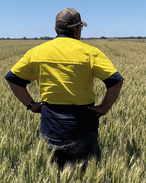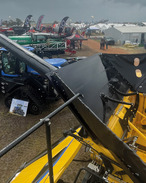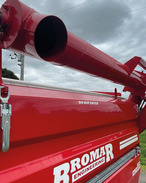This article is 6 years old. Images might not display.
ABARES Executive Director, Dr Steve Hatfield-Dodds, said the new ABARES report released today provides a perspective on the impact of the drought.
"This report confirms that average farm financial performance in South-Eastern Australia will be significantly worse in 2018-19, but not to the levels experienced during the 2002-03 and 2006-07 droughts," Dr Hatfield-Dodds said.
"The impacts of the drought on farm financial performance will be variable, largely in line with regional differences in the severity of rainfall deficiencies," he said.
"Average farm cash incomes in 2018-19 are forecast to be 58 per cent lower in New South Wales and 31 per cent lower in South Australia, albeit from comparatively high levels in the preceding year."
ABARES said within New South Wales, the largest declines are expected in the northern and western parts of the state, where the impact of rainfall deficiencies on farm financial performance have been particularly apparent in 2018-19.
"Average farm cash incomes are expected to fall across all industries in South-Eastern Australia, with the sharpest falls recorded among grain producers and dairy farms," Dr Hatfield-Dodds said.
"Lower milk production, higher fodder costs, and reduced herd sizes mean that average farm business profit for this industry is forecast to be over $150,000 lower per farm in 2018-19 compared with the previous year," he said.
"Although sheep specialists have not been spared the impacts of drought, favourable prices for wool and sheepmeat are expected to limit the worst of the effects."
Hatfield-Dodds said it is important to note that the final picture for farm incomes in South-Eastern Australia in 2018-19 will depend on the success of summer crops in northern New South Wales and southern Queensland.
"Good outcomes for summer cropping are likely to improve cropping farm incomes in these regions," he said.
"The improved availability of fodder and feed grains may also benefit livestock producers."
Detailed projections of farm financial performance for 2018-19 across all state and territories will be available at the Outlook 2019 conference in March.























